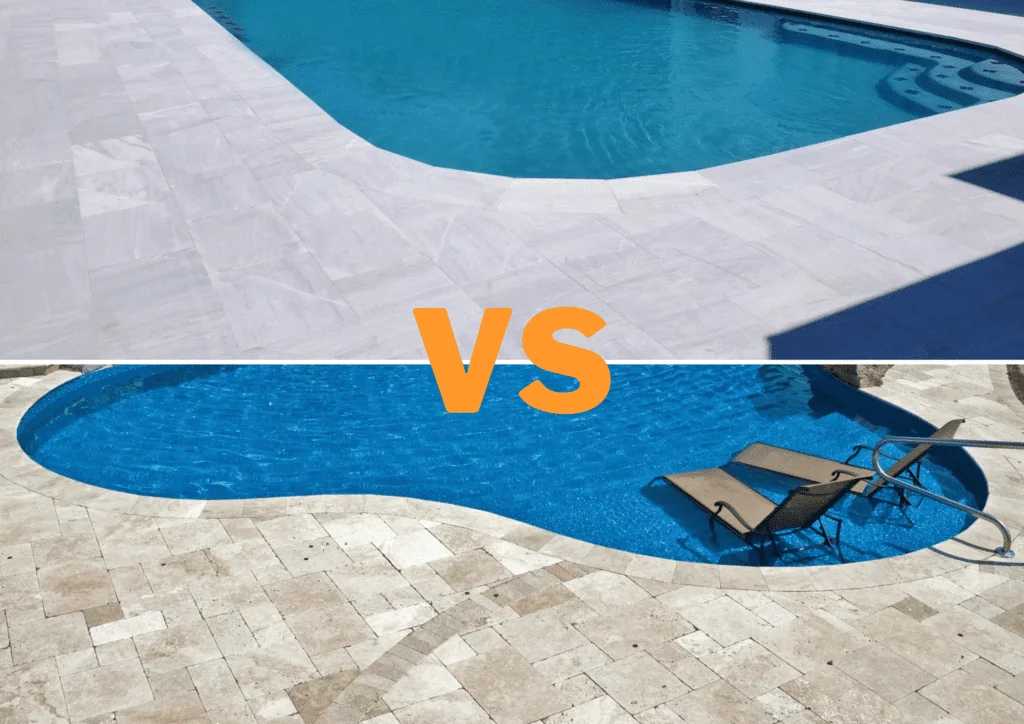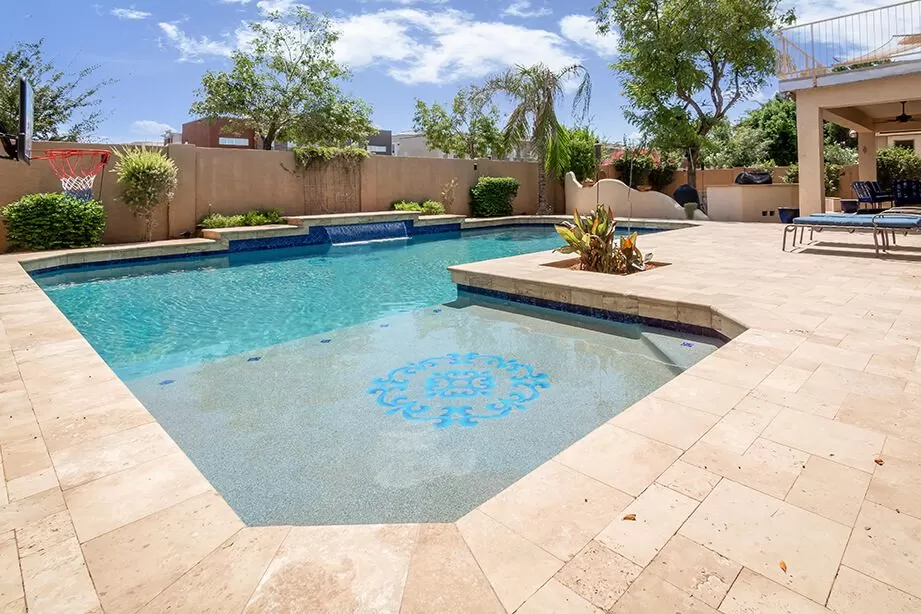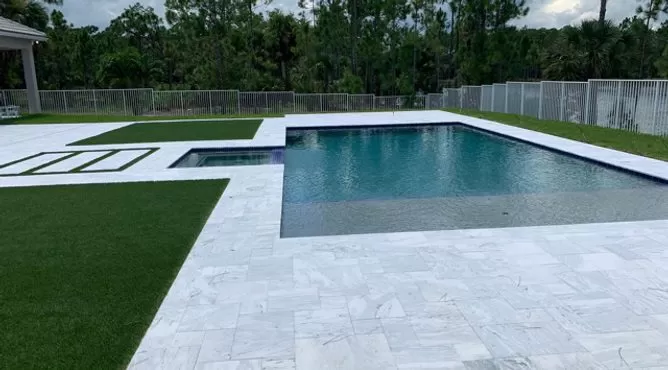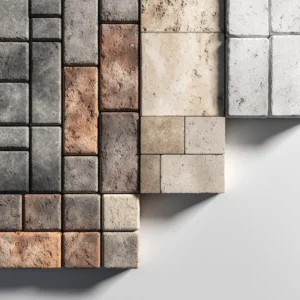
Who hasn’t dreamed of owning a pool i their backyard? If not dreamed, at least considered it at some point. For the homeowners who can make that dream a reality, choosing the right pavers to go alongside it is an important step. So, in the battle between Marble vs Travertine for a pool deck, who is left victorious?
It is a difficult battle. Both option are amazing for a pool decks, as all natural stone pavers are. Still, one has to be better than the other, right? That’s what we’re here to find out together. Let’s make an analysis of each aspect of each option and try to reach a conclusion.
Along the way, hopefully you will get to know marble and travertine better, which will make it easier for you to make that choice according to your situation.
So let’s get right to it, starting with what exactly are each stone.
Jump to:
Marble vs Travertine
For starters, here is a piece of information that might shock you: all marbles were once travertines. Let us explain.
Travertine is a type of sedimentary rock, commonly found near sources of natural hot water. Travertine is formed by the compression of sediments over hundreds of years. This compression leaves travertine with a series of interior “channels” through which water and gas pass through.
If the travertine is then exposed to high heat and pressure for enough time, it becomes denser and much more resistant. It eventually recrystallizes, minimizing the amount of those interior channels. And it at that point that travertine starts to be called marble.
This process happens not only with travertine, but will all forms of limestone. That alone can already help understand the two options a little better. Marble is, basically, o more resistant and less porous travertine.
Of course, the differences don’t stop there. From an aesthetic point of view, travertine usually presents itself in more earthly tones, ranging from pastel white to light brown. Marble, however, can have a greater variety of colors, including even shades of red, blue, and green.

Marble vs Travertine Pool Deck: Which is Better?
Now that you understand a bit more about the composition of each stone, we can move on to the details in regards to a pool deck usage.
Even thought it is very resistant, marble is usually used indoors due to its polish quality. Also, and this is a very important point, marble is very slippery. All the outside installations involving marble must be sealed with a non-slippery finish, especially the ones for a pool deck.
On the other hand, travertine is much more porous, and therefore naturally non-slippery. Travertine is considered the “natural choice” for poolside areas, since you can simply pick up the stone and place it, without having to give it any special treatment to withstand the water.
Cost is also a significant factor when comparing the two options, and things always get tricky when we start comparing paver costs. Pavers of the same material are not guaranteed to always have the same price. That hold specially true for natural stone.
Some forms of natural stone are rarer than others. A white piece of marble, for example, is way more common than a green one. Therefore, the green one will be more expensive.
There are several factors that determine the cost of a specific set of natural stone pavers. The best thing you can do is make a thorough research and weight all the options available to you.
Still, as a rule of thumb, marble is more expensive than travertine. Travertine pavers, with installation included, usually cost between $40 and $50, while marble costs between $50 and $70.

Sealing is Still Necessary
No matter what you choose, sealing is still an aspect of paver installation that cannot be skipped. Pavers are an investment, and should be treated as such. They can for a lifetime if properly sealed and cared for.
If you go with marble, it absolutely needs to be sealed with a special non-slippery finish, as we previously mentioned. Even though is less porous, it still needs to be protected appropriately.
Travertine can be sealed with a simpler water based sealant, which is usually cheaper than the non-slippery ones used for marble. With travertine, choice of the right sealing is delicate, as you don’t want to lose the natural characteristics of it.
In both cases, when it comes to sealing, your best bet is to hire a professional in the hardscape business to help you. A qualified professional can help you with everything, actually, and help you decide the best pavers and sealers for your situation.
Final Verdict
When we put everything together, travertine proves to be the winner of the battle.
Marble may be more resistant and have more options aesthetically speaking, but travertine is a perfect match for poolside areas with less investment.
Still, every case is different, and every paver installation is unique. Once again, your best bet is to hire professionals to help you.
We here at JS Brick have been providing this kind of service around the Sarasota County, in FL, for the past 22 years, so we know how trick things can get and how important it is to work alongside professionals you can trust.
So, we highly recommend you get in contact with a hardscape professional in your area to help you. And if you happen to be around our area of activity, why not give us a call to help you?
You can contact us any time at +1 941 586 9140 to schedule a free consultation on your project. We would be happy to hear from you.



